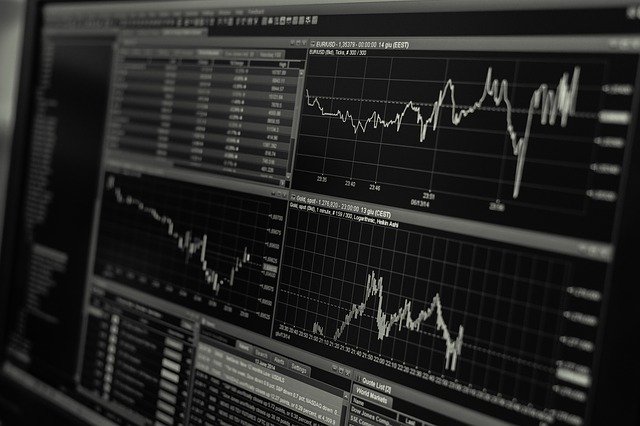If we want to follow the advice of “Buy low and sell high”, we need to understand when is the right time to sell shares.
But when is the right moment? Is it when a company begins to lose its shine? Is it after the first strong evidence that its fortunes have reversed? Or is it when the company actually appears to be the best company to invest in?
This is a really difficult question. Timing the sale of your shares will be some of the hardest investing decisions you will make.

In this article I will approach this topic from a few angles; what does academic theory say, what do investors say, and what is my view.
Academically speaking: Never sell
The academic school of thought is that investors shouldn’t need to sell an investment (until they need the money).

Only shares offer a high rate of return, not cash. Therefore the moment you sell your shares, you reduce your rate of return by moving into a low-return asset.
The efficient market hypothesis states that no investor is able to generate a superior return by playing the market using insights gained from publicly available information. The theory follows that because the information is public, it is already incorporated into prices and therefore no investor has an advantage.
It concludes that investors who buy and sell shares based upon trading signals generated by quantitative or qualitative analysis will fail.
Practically speaking: Beware overtrading
The track record of a small number of successful active investors raises doubt over whether markets are quite as efficient as academic theories suggest.
Some investment managers – particularly in the hedge fund industry, do seem to be able to generate superior returns by timing the purchase and sale of shares.

What is clear, though, is that the vast majority of investors (a group which we should humbly accept we belong to) aren’t able to replicate this success.
We are not hedge funds, we do not hold proprietary trading technology or lightning speed connections to the exchange. We are therefore at a disadvantage!
Another practical downfall is that; amateur investors who ‘churn’ through their portfolio holdings will incur significant investing costs.
It simply isn’t good enough to ‘beat the market’ either. You can get it right more often than wrong and still lose out. All because of those pesky fees.
To come out ahead after fees, you need to generate enough profits per trade to cover:
- Trading fees (£6.95 to buy and £6.95 to sell, or more depending on which stockbroker you choose)
- Bid-offer spreads of 0.1% (on the London Stock Exchange)
- Stamp duty of 0.5% (this tax can’t be avoided when investing)
On a position of £1,000 these fees add up to £19.90. To merely tread water, you need to grow every £1,000 position to £1,020. That feels like a house advantage.

If you take two positions a year, (buy + sell, buy + sell), you would rack up £40 of expenses against this £1,000 alone. If you managed to generate a return of 4%, you would end the year with no money to show for your efforts.
Alternatively, if you bought and held for the long term, e.g. 20 years – the fees are spread over a long period and have a trivial impact. If you earned the same 4% per year, £1,000 would grow to £2,200.
Personally speaking: Can you live with the self-doubt?
My own view on when is the right time to sell shares is: if an investing decision can be avoided – avoid it!
In my early years as an investor, I would buy shares with the aim of disposing of them when the market peaked. This meant that I was continuously deciding whether to sell my holdings.
After a year or so, I discovered that my efforts were having the opposite effect to what I had intended. To my horror, I was actually buying high and selling low. As I reveal in the article, ‘Is now a good time to invest?’, this is a very common experience.
Due to various psychological weaknesses, we are prone to investing while the sun is shining, and selling when things turn gloomy. This rarely leads to a profitable outcome.

It’s very easy to sit in a chair and chuckle at investors making these mistakes, but I promise that you will not have to wait long before you also have a taste of humble pie. When making real decisions about what to invest in, or which fund is the best place for your money, you’ll have to commit and nervously wait to see how your decision turned out.
If you are new to investing, I recommend that you sign-up for a broker that allows you to trade with a ‘demo account’ (i.e. play money). This will help you discover how difficult trading is in practice.
Emotionally, it can be quite distracting to sit on investment losses. You may kick yourself for these judgements that turned out to be poor ones with hindsight.
If you aim to ‘time the market’ by selling at opportune moments, you are putting a lot of pressure on yourself to always be right and to always have a firm idea of what to do. In reality, you will feel uncertain and will question whether you have made the right decisions or not. This leads to a more stressful experience even if you have a suitable appetite for risk.
Conclusion
For an easier life, buy and hold for the long term. No difficult judgements now will mean no regrets later.
This clearer state of mind will help you find patience during recessions and will give you the confidence to stay in the market.
The best reward for investors comes in the surge in prices following a crash. Active investors often miss out on this windfall because they’re still out of the market, licking their wounds.
Enjoying this article? To read more about stocks & shares, check out our ranking of the best stocks & shares books.